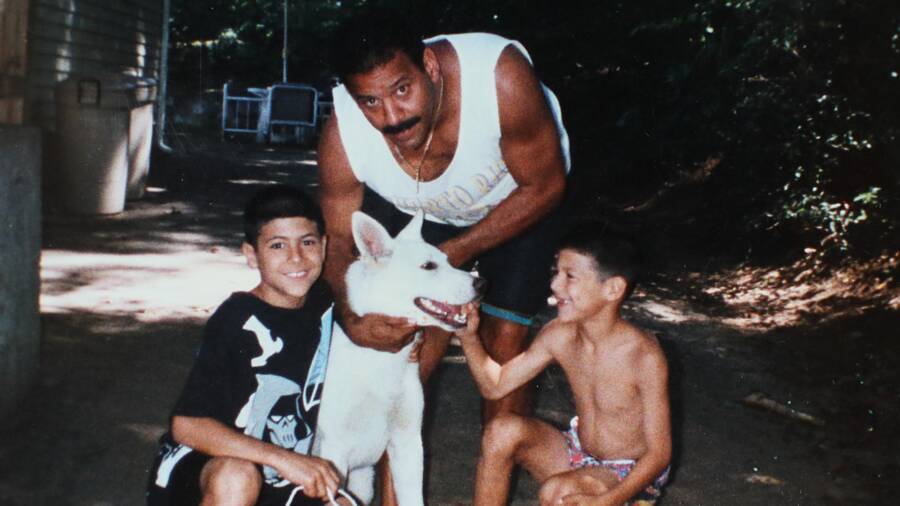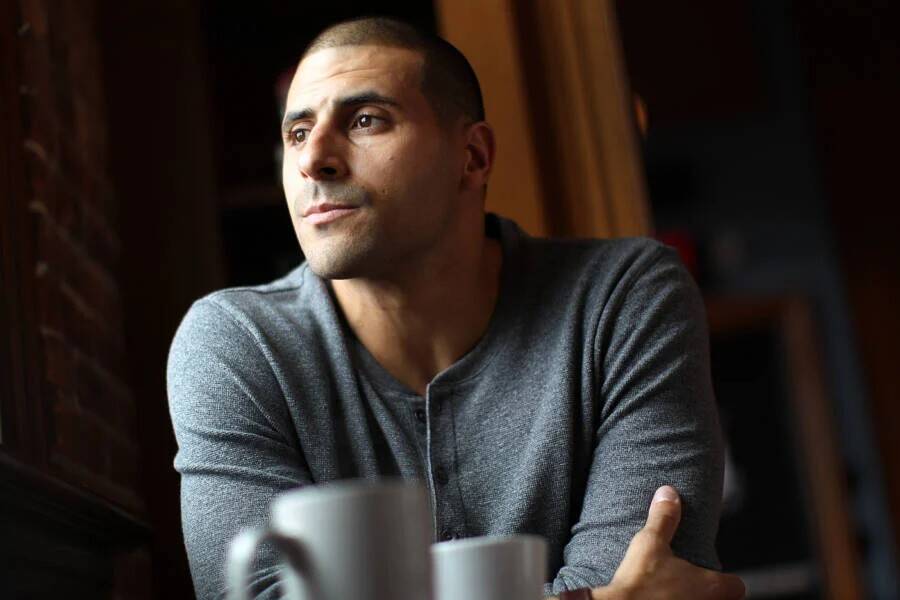The story of the Hernandez brothers is heartbreaking not just because of the sensational headlines but because of what it says about the lasting impact of trauma. What happens in childhood doesn’t stay in childhood. For D.J. and Aaron, the violence, fear, and abuse they endured at home created cracks in their emotional foundations that would only grow wider with time.
Studies have shown that adverse childhood experiences (ACEs) — like physical abuse, emotional neglect, or exposure to violence — can have profound effects on both mental and physical health. These traumas can lead to everything from substance abuse to mental illness and even criminal behavior later in life. It’s no wonder that D.J. and Aaron, shaped by such a volatile environment, struggled as adults to find stability.
But this is more than just a sad story — it’s a crucial lesson for anyone who has faced adversity as a child or knows someone who has. The cycle of trauma doesn’t have to continue. Intervention, therapy, and support can make a real difference in breaking those patterns, providing a way out from under the weight of the past.
D.J.’s Descent: From Football to Felony
D.J. Hernandez was once seen as the more grounded of the two brothers, steering his life in a direction that seemed hopeful. Like Aaron, he was a talented football player, going on to coach at several colleges. At first glance, D.J.’s life appeared to be on a stable path, especially when compared to the chaos that surrounded Aaron in his later years.
But as more details of D.J.’s life have surfaced, it’s clear that he wasn’t immune to the emotional scars left by their shared childhood. Behind the scenes, D.J.’s life was unraveling too. His arrest in 2023, following accusations of threatening his estranged wife and plotting school shootings, has shocked many. It’s a stark reminder that trauma, if left unaddressed, can resurface in destructive ways.
His legal troubles bring up difficult questions. How did the brother who once sought to understand Aaron’s tragic path end up embroiled in his own legal turmoil? Was D.J. trying to outrun the shadows of his past, only to find himself dragged back into darkness? The answers are likely complex, but they all point back to the unresolved pain that shaped the Hernandez brothers from such a young age.

The Larger Issue: Addressing Mental Health Stigma in Men
Another key factor in this story is the stigma around mental health, particularly for men. Both Aaron and D.J. were expected to live up to traditional notions of masculinity — strong, tough, unemotional. Growing up in a home where their father wielded violence as a form of control, it’s easy to see how emotional vulnerability was likely never an option for either brother. They were taught to be hard, to endure, and to suppress any feelings that might be seen as weak.
For Aaron, this suppression led to explosive results. His involvement in gang activity, violent outbursts, and eventually murder can be seen as extreme manifestations of unresolved mental health issues. For D.J., his quiet simmering struggles seem to have finally boiled over as well.
Men, especially those raised in environments like the Hernandez brothers, often face enormous pressure to maintain a facade of strength. Talking about mental health, seeking therapy, or admitting to emotional struggles is still, for many, seen as taboo. It’s time to break down these stigmas. If there’s anything to take away from D.J. and Aaron’s stories, it’s the vital importance of addressing mental health early and openly, especially for young boys and men who may otherwise feel that they have no outlet for their pain.
Moving Forward: Can D.J. Reclaim His Life?
It’s difficult to say what the future holds for D.J. Hernandez. The charges against him are serious, and it’s clear that he is facing an uphill battle. But even in the darkest moments, there can be a chance for redemption and recovery. The human spirit is resilient, and with the right support, even those who have walked down the most troubling paths can find a way back.
If there is any hope for D.J., it lies in confronting his past and taking responsibility for his actions. Healing from childhood trauma isn’t easy — it takes time, effort, and a willingness to face painful memories head-on. But it’s possible, and many people have successfully broken free from the cycles of abuse, violence, and self-destruction that once seemed impossible to escape.
Whether or not D.J. will be able to do this remains to be seen. But for those watching from the outside, his story serves as a reminder that trauma left untreated will often find a way to manifest, sometimes in dangerous and destructive ways. The work to heal must begin early, and it must continue with diligence and support.
Conclusion: Learning from the Hernandez Tragedy
The tragedy of the Hernandez brothers goes far beyond the headlines. It’s a story of how unresolved trauma can shape and destroy lives, of how the pain of childhood can follow someone into adulthood, and of the ways that violence and abuse perpetuate cycles of suffering.
But it’s also a story of missed opportunities — to intervene, to help, to break the cycle. Aaron Hernandez is gone, his life cut short by a series of poor choices and the demons that haunted him. D.J. Hernandez is still here, but he stands at a crossroads, facing legal battles and the consequences of his own actions.
Their story should be a wake-up call for anyone who has endured childhood trauma or who works with children in difficult circumstances. Intervention is crucial. Mental health must be prioritized. And above all, the cycle of trauma must be broken before it’s too late.
Call to Action: Seek Support and Break the Cycle
If you or someone you know is dealing with the effects of childhood trauma, there is help available. Don’t wait until the pain becomes too much to bear. Reach out to resources like the National Child Traumatic Stress Network or the National Suicide Prevention Lifeline for guidance. The sooner the healing process begins, the sooner a brighter future can be realized. Let’s stop trauma from shaping the next generation.

